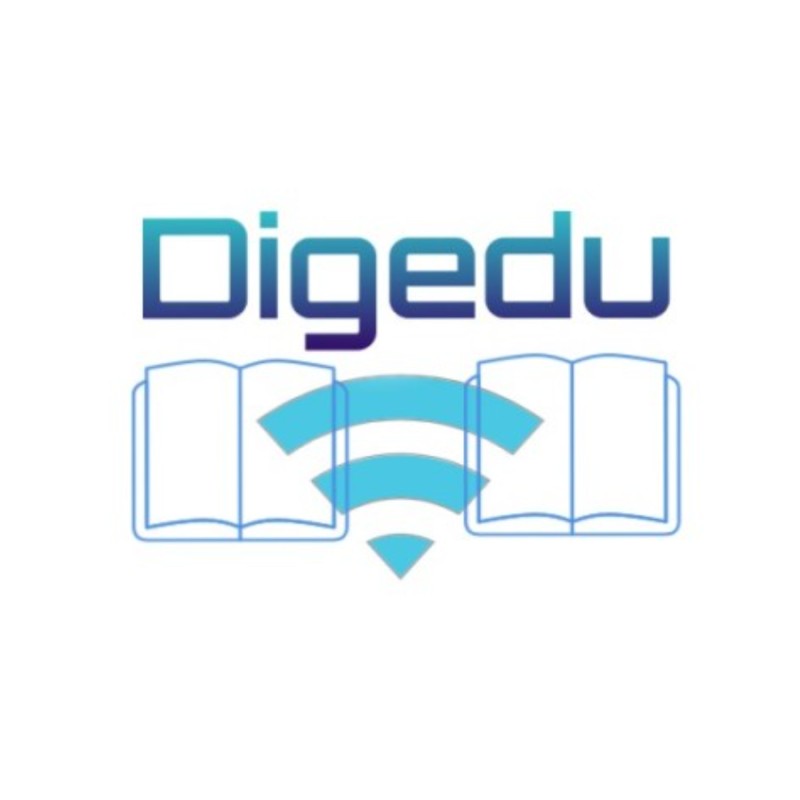DIGEDU
PID2021-126048OB-I00
SUMMARY AND OBJECTIVES
Digitalization is changing the whole society, giving rise to important economic and social transformations, and this change is increasingly manifesting explicitly in multiple professions and occupations (Pérez et al, 2019). In the field of education, digitalization is also influencing the Spanish educational system as a whole. The implementation of digital applications (e.g., wifi networks, electronic whiteboards, laptops and tablets, electronic backpacks, etc.) over the years has had a progressive impact, although of limited scope in our country, depending on the economic resources, the innovation culture of each center and the initiative of the teaching staff. This process involves complex transformations in educational processes, in the behavior of teachers and students, in the technologies used and in the results, all of which require rigorous analysis and evaluation. In this context, the DIGEDU project seeks to identify inputs for the redesign and improvement of conditions and processes that enhance the resilience and
sustainability of education in Spain.
In this line, the digital environment implies a redesign of teaching tasks (Eurofound, 2016; CES, 2018). There is a growing trend towards greater intensification of work, which requires working faster and multitasking, and an increase in the learning demands of emerging digital technologies that are incorporated into workplaces (DIGCOMP project). If these changes are
not properly managed, they can have a negative impact on well-being and job satisfaction (Parker et al. 2020). According to Hobfoll's (1989, 2001) Conservation of Resources Theory, the learning process for effective use of digital technologies will involve an investment of resources that may initially have a negative impact on job performance and well-being. Therefore, in this context of digitalization, it is required to identify the needs of teachers and develop strategies that allow the acquisition of digital competencies at an appropriate level. In addition, this project studies the individual and organizational variables that have an impact on the effects of the digitalization of educational positions, including organizational support,
attitudes towards ICTs, age and gender. For this purpose, a field and longitudinal study (with two measurement moments over two academic years) is proposed. Between 20 and 25 public and state-subsidized secondary schools will participate in the study, with a total of around 350
teachers. A mixed methods design is proposed, combining a qualitative perspective (semi-structured interviews with school management) and a quantitative perspective (on-line questionnaires for teachers). Based on the results, action strategies will be proposed that take into account individual and organizational factors that enhance the performance and well-being of the teaching staff.
The general objective of this research project is to study the influence that the level of digitalization of teachers' jobs has on their perception of job characteristics (variety, autonomy, feedback, personal interaction), digital competencies and work outcomes (well-being and performance). We will also analyze the extent to which this impact depends on organizational factors (organizational support of the center) and individual factors (gender, age, attitude towards ICT, self-efficacy with ICT). In order to achieve the general objective of the project, the specific objectives are listed below:
1- To identify effective strategies for the improvement of the design of posts during the digitalization process in educational centers.
2- To examine whether the level of digitalization perceived by teachers leads to changes in their job characteristics and their impact on well-being and performance.
3- To examine whether the level of digitalization perceived by teachers leads to changes in their digital competencies and their impact on well-being and performance.
4- To analyze the influence of organizational support on the relationships included in the research model longitudinally (two time points).
5- To analyze the influence of attitudes towards ICT and/or self-efficacy perceived by the teaching staff on the relationships included in the research model longitudinally (two time points).
6- To evaluate whether age and gender influence the relationships included in our research model longitudinally (two time points).
- Zornoza Abad, Ana
- PDI-Catedratic/a d'Universitat
- Coordinador/a de Programa de Doctorat
- Orengo Castella, Virginia
- PDI-Titular d'Universitat
Universidad de Sevilla: Nuria Gamero, Donatella Di Marco
Universitat Oberta de Catalunya-UOC: Vicente Peñarroja
- Ramos Lopez, Jose
- PDI-Catedratic/a d'Universitat
- Director/a Titulacio Master Oficial
- Peiro Silla, Jose Maria
- PDI-Emerit/a Universitat
- Ramos Lopez, M. Amparo
- PDI-Prof. Permanent Laboral Ppl
- Pons Verdu, Fernando Jose
- PDI-Prof. Permanent Laboral Ppl
- Director/a Titulacio Master Oficial
- Gonzalez De Anta, Juan Baltasar
- PDI-Ajudant Doctor/A
Project PID2021-126048OB-I00 financed by MCIN/ AEI /10.13039/501100011033/ and by FEDER a way of making Europe.









